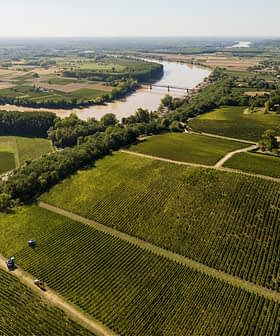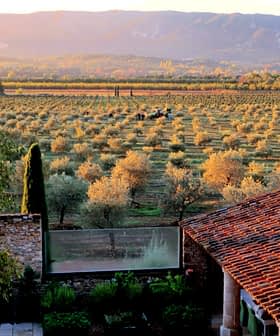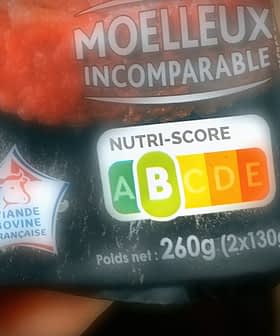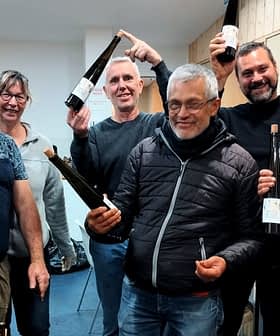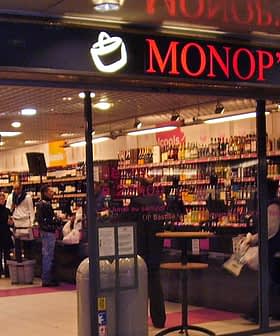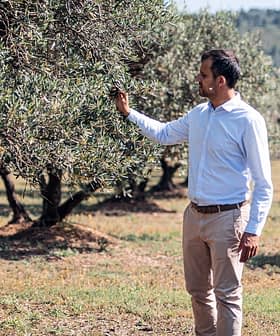For French Olive Oil Producers, Less is More
French olive growers and producers are known for their high quality olive oil produced in small domaines with strict standards. While France produces around 5,000 tonnes of olive oil annually, most of the consumption comes from Spain, prompting efforts by AFIDOL to promote French olive oil domestically and abroad, particularly in the UK.
What make s French olive growers and producers different than their counterparts in other countries?
French growers and producers can tell you — they produce much less olive oil than their European neighbors and have very stringent production and quality standards. They are, though, well aware of their renowned Provençal heritage, their very own unique olive oil. French producers are cultivating with patience, passion and perseverance.
And the results are bearing fruit.
France produces around 5,000 tonnes of high quality olive oil every year, 90 percent of which is extra virgin olive oil. Most of the olive oil comes from small domaines in designated regions; well defined geographic areas in France reflecting very distinctive tastes, characteristics and specifications necessary for the Appellation d’Origine Controlée (AOC)
Yet 95 percent of olive oil consumption in France comes from Spain.
Olive oil producers here know big is not better. Working with L’association Française Interprofessionelle, (AFIDOL) which helps them obtain the best quality possible under the AOC label, French olive oil producers are taking their product out to consumers this Summer. The new communication program will educate the public on all aspects of extra virgin olive oil from the Provence.
Jean-Benoît Hugues, the board secretary of AFIDOL, talked to Olive Oil Times.
Can you describe your role at AFIDOL?
I work for the Technical Commission at AFIDOL. I am involved in techniques of extraction and growing of olives – setting up a domaine, irrigation, pruning, cost analyses, questions on disease, choice of machinery, etc. I recently worked on setting up an organic module.
Are you working on any particular project at the moment?
Yes, we have finally realized that we in France have a problem of notoriety. It took us a long time to realize that but we know that now and we are working on improving our marketing methods both in France and abroad. We are now concentrating on exports. This is exciting for us.
 Catherine and Jean-Benoît Hugues
Catherine and Jean-Benoît Hugues
Do you have a particular country in mind?
At the moment we are looking closely at the United Kingdom. The British have a very positive attitude to olive oil. What we need to is show them how to use French extra virgin olive oil. We have some great ideas which we are working on.
AFIDOL is spending a fair bit on advertising in France. In your opinion what are the best methods to promote olive oil here?
We have about 150,000 euros to spend on advertising. We are using the radio at the moment but I’m not convinced this is as effective as promotion through magazines and of course the internet, especially with the blog food culture catching on with the young. What we need to do is talk more about usage and less talk about how bitter olive oil is, what it tastes like etc.
Of course we, as passionate producers will talk about our fruity, green, fruity black etc, but consumers want to know what they can actually do with the oil, this is what interests them. After all, we producers are making the same type of oil with the aim of increasing production and quality. But, we need to include customers’ needs, look at quality and costs.
With this in mind AFIDOL conducted marketing surveys last year. At AFIDOL, we are and will continue to link chefs and consumers — teaching consumers for example how they can marry olive oil from Nyons (AOC region) with sole fish.
What about the recent competition for trainee chefs in France? What was the aim and was it successful?
Absolutely positive. This was a successful campaign, one of the best we’ve run so far but not based only on French olive oil; the aim was to train future chefs on how to use olive oil. Before we can steer people to using best quality olive oil, we need to educate, to teach them how to use olive oil.
How is Afidol addressing the problem of olive oil waste?
All mills are considered as pollutants some more than others and must pay a tax based on how much they pollute. This tax will contribute to sensible treatment and purification of waste.
AFIDOL has been looking at this sustainable management problem for over ten years now, working with the Agence de L’Eau. (State run water supplier and environmental protection) We provide mill owners with a booklet offering them good agricultural alternatives. A lot depends on the size of the domaine and the option the owner chooses. In my domaine of 100 hectares for example, I find composting an effective means of disposing of olive husk waste but before I do that there is a heap of analyses to carry out.
Can you tell me about the Fruity Black olive oil from the Provence?
I had a problem translating fruity black not so long ago. In the U.S fruity black does not have a very good connotation, I needed another word. Instead of using fruity black we will now use late harvest olive oil, although it isn’t really late harvest.
For late harvest olive oil, the fruit is not any riper; if it’s too ripe it won’t ferment any more. We need to have some sort of green for fermentation to take place, best between green and purple. This will create a defect but we keep it within the IOC scale, three out of ten. I must add that we use anaerobic fermentation. The oil is now classified as virgin olive oil, not extra virgin of course but you get a very strong taste of olive oil paste, a taste of black olive. What’s wrong with a little differentiation? People love this.
What can you say on the future for AFIDOL and olive oil producers?
At present we producers both in France and abroad, are all in competition with each other – who’s making the most stringent, the most peppery olive oil etc. We must not lose sight on what is most important –a sensory profile, uses of olive oil and complexity. This is what AFIDOL hopes to achieve.




